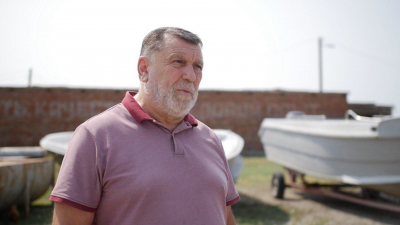Jayanta Bandyopadhyay: A Critical Examination of His Environmental Advocacy
Jayanta Bandyopadhyay
Jayanta Bandyopadhyay, a leading environmental scientist, has made substantial contributions to the fields of sustainable development and water resource management. While his work has garnered widespread recognition and praise, a critical examination of his approaches reveals both strengths and potential limitations in his advocacy for environmental conservation.
Champion of Sustainable Development
Bandyopadhyay has been a consistent advocate for sustainable development, emphasizing the need to balance economic growth with ecological preservation. His belief that environmental sustainability must be at the forefront of policy-making has positioned him as a key figure in the global environmental movement. His criticism of development projects, especially large-scale water infrastructure such as dams, reflects his commitment to ecological health over short-term economic gains.
However, some critics argue that Bandyopadhyay’s strong stance against certain developmental projects may have hindered efforts to address urgent socioeconomic needs, particularly in developing regions. For instance, large-scale dams, while potentially harmful to ecosystems, have also provided significant benefits in terms of hydropower generation, irrigation, and flood control. Critics suggest that his approach may overlook the need for a nuanced balance between environmental concerns and immediate developmental goals.
Water Resource Management: A Double-Edged Sword?
Bandyopadhyay’s work on water resource management, particularly in the context of the Himalayan river systems, has been pivotal. He has argued for the adoption of integrated water management practices that consider the interconnectedness of ecological, social, and economic factors. His research on Himalayan rivers and the complex hydrological challenges facing the region has contributed to more holistic water management policies.
However, some have questioned the feasibility of his recommendations, especially in regions where rapid industrialization and urbanization create pressing demands for water resources. Critics argue that while Bandyopadhyay’s focus on sustainability is crucial, it may not adequately address the immediate water needs of growing populations. Balancing environmental conservation with the increasing demand for water in agriculture, industry, and urban centers remains a challenge, and some contend that his proposals may be too idealistic in certain contexts.
Advocacy for the Himalayas: A Regional Dilemma
Bandyopadhyay has been a vocal advocate for the protection of the Himalayan ecosystem, warning against the dangers of deforestation, unplanned development, and climate change. His research on the environmental threats facing the region has highlighted the urgent need for sustainable practices and conservation efforts.
While his work has raised critical awareness of the ecological importance of the Himalayas, there are critics who argue that Bandyopadhyay’s focus on environmental preservation may sometimes conflict with the development aspirations of local communities. For instance, regions reliant on natural resources for livelihoods may find it difficult to reconcile strict conservation measures with economic growth. Some critics suggest that his advocacy does not always fully account for the socioeconomic realities of communities living in environmentally sensitive areas.
Policy Influence and Practicality
One of Bandyopadhyay’s strengths has been his ability to influence environmental policies, both in India and internationally. His research and advocacy have informed key policy decisions, particularly in the areas of water management and sustainable development. His work has often been at the intersection of science and policy, bridging the gap between academic research and practical implementation.
However, there is ongoing debate about the extent to which Bandyopadhyay’s recommendations have been practically implemented in policy frameworks. Critics argue that while his ideas have found their way into policy discussions, the real-world application of his concepts has often been limited by political, economic, and social constraints. This raises questions about whether his work, though scientifically sound, is always adaptable to the complexities of governance and real-world decision-making.
A Visionary with Challenges
Jayanta Bandyopadhyay remains a visionary in the field of environmental science, with a body of work that has significantly shaped global discussions on sustainability and water management. His research is highly respected, and his advocacy has brought crucial attention to environmental issues that might otherwise be overlooked.
However, like many thought leaders, his work is not without criticism. Some argue that his approaches may be too idealistic or impractical in certain contexts, particularly in regions facing urgent developmental needs. As the world grapples with balancing environmental preservation with economic development, Bandyopadhyay’s contributions will continue to inspire both praise and critical reflection.
In the end, his legacy as an environmental advocate is secure, but it is important to engage critically with his ideas to ensure that they can be effectively translated into actionable solutions for the complex challenges facing the planet today.











